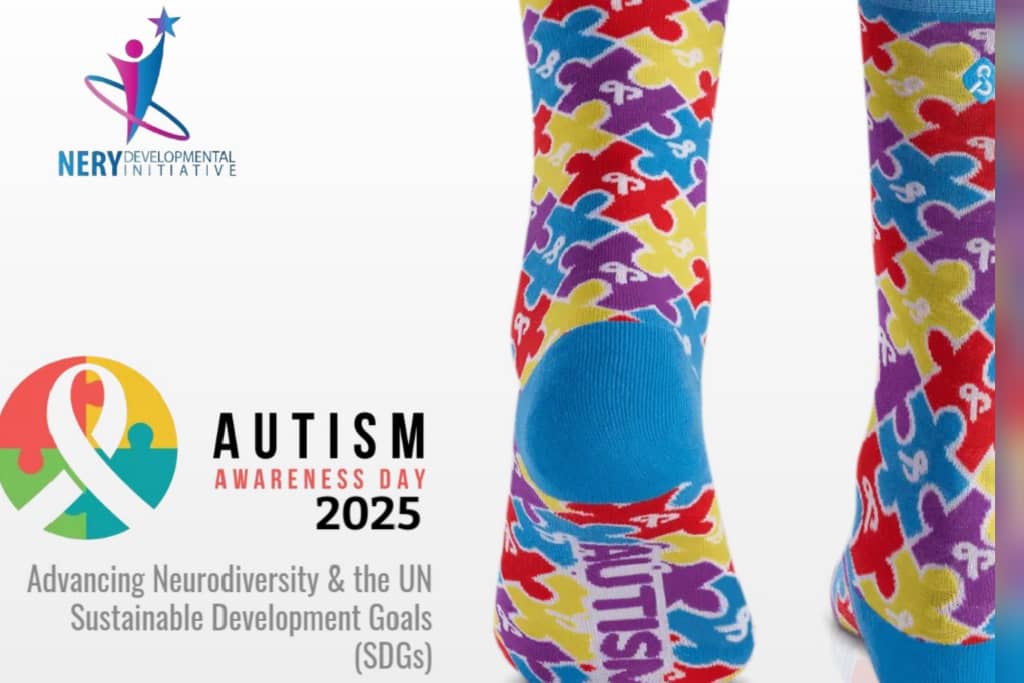As the world marks the 2025 World Autism Awareness Day (WAAD) under the theme “Advancing Neurodiversity and the UN Sustainable Development Goals (SDGs)”, experts and advocates are calling for greater inclusion of autistic individuals in Nigeria’s development agenda.
The annual event, organized by the Institute of Neurodiversity (ION) with the support of the United Nations Department of Global Communications, underscores the urgent need to integrate neurodiverse perspectives into policies on healthcare, education, employment, and urban planning.
In Nigeria, the Nery Developmental Initiative (NDI), a leading non-profit organization dedicated to humanitarian causes, which has been at the forefront of supporting children with autism, and advocating for persons with disabilities, has joined the global conversation, urging policymakers to adopt innovative approaches that promote accessibility, equality, and social inclusion for autistic individuals.
Founded by Ambassador Rita Chika Ezenwa, NDI has initiated several projects aimed at providing care for children with autism, out-of-school children, and victims of abuse. According to Amb Ezenwa, who also serves as the Executive Director of NDI, the country must shift from mere awareness to active acceptance and support.
In a media statement, marking the 2025 World Autism Awareness Day, Ezenwa emphasized that autistic individuals in Nigeria face significant barriers, from lack of specialized education to workplace discrimination. She stressed the need to move beyond awareness and implement systemic changes that enable full participation in society.
Call for Policy Reforms and Innovations
To align with the UN SDGs, particularly Goal 4 (Quality Education), Goal 8 (Decent Work and Economic Growth), and Goal 10 (Reduced Inequalities), NDI proposed inclusive education policies that mandate autism-friendly curricula, teacher training, and assistive learning technologies in public and private schools. The organization is also advocating for increased employment opportunities, urging businesses to create autism-friendly workspaces and offering tax incentives to companies that hire neurodivergent individuals.
Another key aspect of NDI’s recommendations is autism-friendly urban development, which includes designing sensory-friendly public spaces and transport systems to accommodate neurodiverse individuals. Additionally, expanding access to affordable healthcare services for autistic individuals in both urban and rural areas remains a priority.
NDI called on the Nigerian government, corporate organizations, and civil society groups to collaborate in implementing evidence-based solutions that will improve the quality of life for autistic persons in the country.
As Nigeria joins the rest of the world in commemorating World Autism Awareness Day 2025, stakeholders emphasize that the real measure of progress will be in concrete actions rather than symbolic gestures. The need for a national autism inclusion strategy has never been more pressing.
READ ALSO: NDI Engages FCT Board, Unveils Menstrual Health Project
Amb. Ezenwa concluded that this is not just about autism; it is about building a society where everyone, regardless of neurological differences, has the opportunity to thrive. The coming months will be crucial in determining whether Nigeria can rise to the challenge and make neurodiversity a pillar of its development agenda.
- By Ken Gbados







